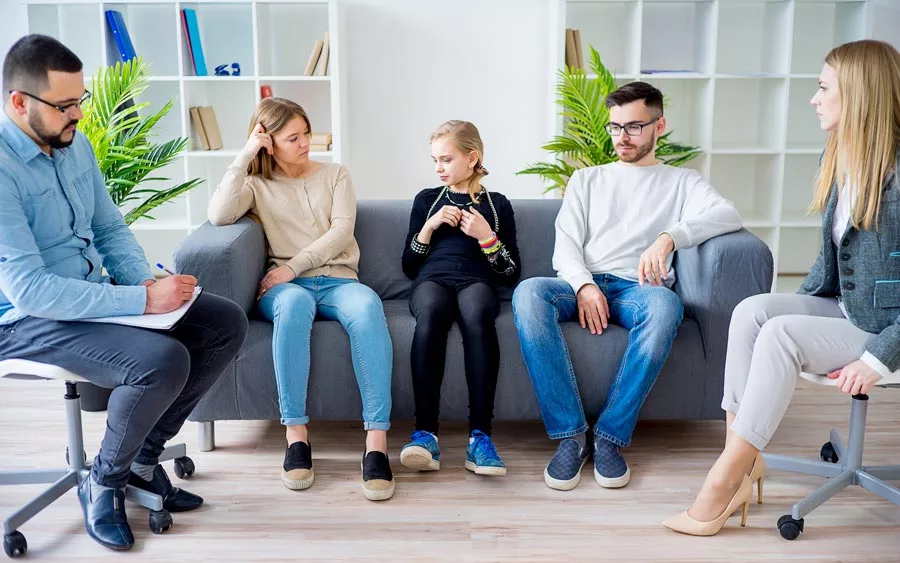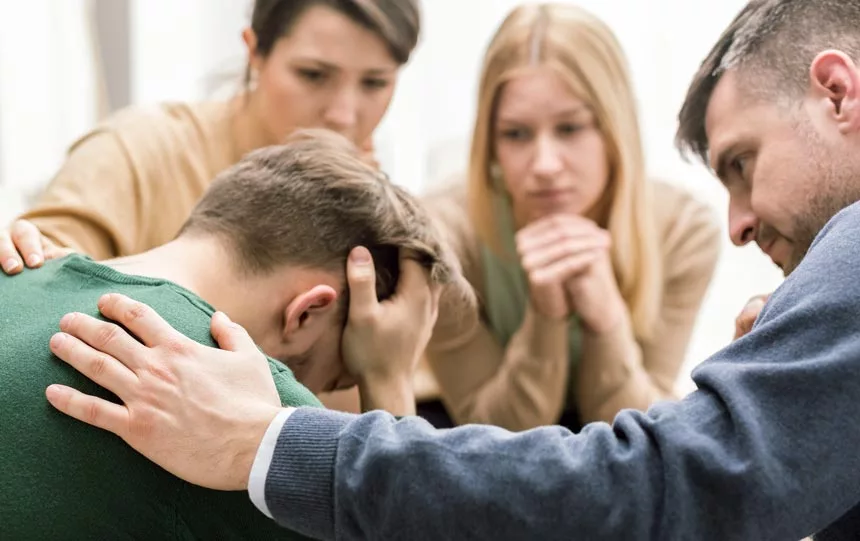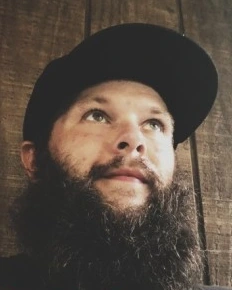How Does Addiction Affect the Family Members of Those Struggling With Substance Abuse?
Table of Contents
- How Does Addiction Affect the Family Members of Those Struggling With Substance Abuse?
- Understanding the Causes and Contributors of Alcohol and Drug Addiction
- Dysfunctional Family Roles: Understanding the Part Addiction Plays
- Support Services for Families Affected By Addiction
- The Importance of Setting Healthy Boundaries and Developing Better Family Communication Skills
- Understanding the Role of Family Therapy for Treating Addiction and Helping Restore Family Bonds
- The Importance of Intervention In Addiction Treatment
- Get Help for Families of Addicts at Find Addiction Rehabs
- Medically Reviewed By
Addiction is an incredibly difficult and life-altering disease, not just for those who are struggling with this condition, but for their loved ones, as well. Unfortunately, it is fairly common for the importance of family involvement to be overlooked when it comes to substance abuse. Thankfully, our resources designed to provide help for families of addicts are here!
This applies in multiple ways, as the support and understanding of their family members can be pivotal in a person’s ability to overcome their addictions. Of course, the harmful effects a persons’ substance abuse can have on their loved ones is also often ignored or underestimated.
Drug and alcohol addiction can cause extensive damage to the cohesion of the family unit, often isolating those struggling with disease from their families and, unfortunately, their families from them.
This may occur for several reasons, as many people do not understand or have a highly stigmatized view of addiction, leading them to separate from and villainize their addicted loved one’s.
Even for those who do their best to support their struggling loved one, their addiction can still cause them great difficulty and pain. This, of course, reveals the major importance of providing support to the families of addicts, so that they can help both their loved ones and themselves.
Understanding the Causes and Contributors of Alcohol and Drug Addiction
Before one can discover how they can help themselves or a loved one recover from the physical and emotional harm caused by addiction, they must first better understand substance abuse. For most people, they do not start abusing drugs and alcohol without an underlying reason.
This may be due to several causes, including negative home, work, or school environments, poor social influences, underlying mental health conditions, and various other reasons. Furthermore, once they have formed an addiction, it can be extremely difficult to stop using.
Many people believe that an addicted person is using drugs or alcohol purely because they want to or do not have the willpower or moral strength to stop. This, however, could not be further from the truth. Over time, abusing drugs and alcohol will cause a person to develop a physical and psychological dependence on these substances.
At this point, their body and brain will have become chemically reliant upon the regular consumption of these drugs. Once this happens, it will be very difficult to quit using on their own, as this will likely cause them to experience highly uncomfortable and even potentially life-threatening mental and physical health effects.
This will be particularly true for those with an underlying mental illness, as they likely began abusing addictive substances as a way of self-medicating the painful thoughts and feelings their co-occurring disorders may cause.
Dysfunctional Family Roles: Understanding the Part Addiction Plays
When it comes to family units, those affected by any sort of unhealthy behavioral patterns or home environments are referred to as dysfunctional families. Within these units, there are various roles that may be assigned to different members of the households.
For those affected by addiction, a member’s substance abuse habits can develop as a result of their dysfunctional home environment. Or, these habits may be the contributing factor to the development of a dysfunctional family unit.
Within a dysfunctional family, there are certain archetypes or “roles” that each member may end up developing in response to and to help cope with their unstable home environments. The most common of these roles include:
- The Hero or Savior Archetype
- The Lost Child Archetype
- The Mascot Archetype
- The Rescuer/Caregiver Archetype
- The Scapegoat Archetype
The Hero/Savior Archetype
The Hero/Savior archetype is typically viewed as the “golden child” or “shining star” of the family, often expected to mask any conflict or imperfections within the family by being high-achieving perfections. For those who hold this role in their family unit, they are trapped under the expectation of maintaining both their own appearance, and that of their family.
This can prevent them from both providing and receiving adequate support for a loved one who is potentially struggling with addiction. Rather, they may end up fostering harmful codependency within the family, and inadvertently supporting their loved one’s addictive habits by continuing to mask the issue, or presenting themselves as being above or better than the addicted individual.
The Lost Child Archetype
The lost child trope is often the forgotten family member, usually existing on the sidelines to the rest of the family unit. These individuals tend to avoid confrontation, detaching themselves from the problems happening within their household.
Lacking necessary support from their family, the lost child role is one that leaves the person filling it to suffer in silence. Unfortunately, this can lead to drug and alcohol abuse as a coping mechanism, or emotional disconnection from another family member struggling with these issues.
The Mascot Archetype
The Mascot archetype of the classic dysfunctional family unit typically fills the role of comedian amongst the members, constantly providing comic relief and pushing themselves to try and ensure everyone else is happy; often, unfortunately, at the expense of their own well-being..
In some cases, this humor may even be directed at a family member who is struggling with addiction, further exacerbating these issues. For others, using humor as a maladaptive coping mechanism can lead the mascot to begin abusing substances to cope with difficult feelings.
The Rescuer/Caregiver Archetype
The Rescuer/Caregiver archetype typically serves as the family member who will make excuses for an addicted person’s codependent behaviors. However, downplaying or excusing these abusive and destructive habits can cause harm to the entire family.
Refusing to address their family member’s issue with addiction may prevent them from seeking the professional help they need to get sober, allowing the negative consequences of their actions to continue financially, emotionally, and even physically hurting the rest of the family unit.
The Scapegoat Archetype
The Scapegoat role within dysfunctional family units serves as the member that is regularly (if not always) blamed for the family’s problems. They are seen as inherent troublemakers, and are typically those most likely to abuse substances within the family.
Unfortunately, their addictions are often not entirely their own fault; rather, they come from the internalization of their assigned role, and extreme feelings of being misunderstood and outcasted by their own family.
Support Services for Families Affected By Addiction
There are various services that offer support for families of addicts, many of which are easily accessible, regardless of a person’s personal background or financial situation, including family therapy services, a ‘families of addicts’ support group, education services and other resources.
Mental Health Assessments and Services for Families Affected by Addiction
Addiction is considered to be a family disease, meaning that the recovery process will likely be a family effort. Whether it be a romantic partner, parents, siblings, or anyone else, a person’s family can be their best resource in achieving and maintaining sobriety.
Of course, this same level of support will be needed in the family’s recovery journey from the destruction of a loved one’s substance abuse. Part of this will include mental health treatment options for those whose lives have been affected by someone else’s destructive habits.
Fortunately, there are many resources that provide this help, including several mental health support options that are available for those struggling both directly and indirectly with addiction, such as free mental health assessments, as well as individual and family therapy sessions.
These can help both the addicted person and their family members better understand the causing and contributing factors of their loved one’s drug addiction, the addiction treatment process, as well as how to better address, manage, and provide support for these habits.
Education Services for Families Affected by Addiction
One of the most important resources to utilize when attempting to understand and heal from a loved one’s substance use disorder is addiction education services. These can help families affected by a person’s drug addiction to better understand the nature of substance abuse.
Most of the negative feelings and beliefs projected onto a person’s drug abuse by their families come from a lack of understanding and education about addiction as a disease. This can make it incredibly difficult to manage and overcome a person’s addiction.
Many people believe that addicted individuals are able to freely choose to stop their substance use at any point. However, science-based research provides evidence that addiction is a brain disease. In particular, one that can make it feel impossible to make sound, healthy decisions.
By providing support for families affected by addiction, these individuals can begin to understand the differences between active choices and involuntary compulsions. These services may come from a peer support group, or professional treatment facility.
Whether through using in-person or online resources, any level of knowledge into what it is like to be addicted can help them move away from simply pointing fingers, to actually looking into addiction treatment options, and starting the recovery process.
Support Groups for Families Affected By Addiction
There are many support groups that are available to help families that have been affected by addiction. Certain addiction treatment centers will also offer access to these support groups and counseling services as a part of their recovery approach.
Some of the most well-known family programs that focus on helping the loved ones of addicted individuals include Al-Anon and Nar-Anon Family Groups, which are support groups based off of the 12-step recovery programs, Alcoholics Anonymous and Narcotics Anonymous.
These programs seek to help the whole family overcome the destruction of addiction, offering emotional comfort and understanding to those who have had to or are currently struggling with another person’s substance use.
The Importance of Setting Healthy Boundaries and Developing Better Family Communication Skills
Communication is key to any healthy relationship, including those within families. This is why proper communication and boundary-setting skills are an integral part of making sure that an addicted individual can reach out and receive support from their loved ones when needed.
Of course, communication does not just entail just speaking. After all, active and healthy listening skills can allow individuals to better understand what their recovering family member needs, and can help encourage and allow them to feel supported in making better life choices.
On the other hand, poor communication or wrongly addressing the issue of addiction may only drive an addicted person away, causing them to become wary about asking for help in the future. Thus, proper communication is critical for families to establish healthy boundaries.
With that being said, a person’s disease does not excuse their destructive behaviors. Making sure that they understand how their actions have caused others harm can make them more willing to seek out and accept support in overcoming their substance use habits.
Understanding the Role of Family Therapy for Treating Addiction and Helping Restore Family Bonds
While therapy can seem like an intimidating or unnecessary step in the recovery process for many, people suffering from addiction will need additional resources that can treat the underlying causes of their addiction.
Seeking out professional mental health treatment and support should be a key component of a person’s recovery journey, and one that involves all members of the family, not just the addicted individual.
A licensed mental healthcare provider can help address how and why a person’s addiction formed and the external or internal factors that are exacerbating these problems. In many cases, a toxic family environment will serve as a significant contributor to their substance abuse.
Therapy can also address and help dismantle dysfunctional family roles, providing healthier coping mechanisms and self-realization tools that can allow each member to form their own identity, free from the influences of their assigned archetypes.
The Importance of Intervention In Addiction Treatment
A person’s successful recovery often does not start without external help. This is where interventions come into play, often serving as a valuable tool in helping addicted individuals to reflect upon and understand the harm their actions are causing to both themselves and others.
Many interventions will require the support of an intervention specialist, such as a licensed social worker, therapist, or other professional. These individuals can help plan and execute these conversations, helping to keep them on track, supportive, and safe for all those involved.
While interventions can become aggressive or emotionally intense, these can be an effective means of showing the addicted individuals that they are cared for and supported when properly executed.
This is why their immediate loved ones and close family members should be present during an intervention, prepared to express to the addicted person their concerns and desire to help them overcome their substance abuse.
This may also include the addicted person’s close personal relationships, such as their friends or romantic partners. While it may seem easier to hold an intervention without the support of a trained intervention specialist, this is not advised.
This is because a bad intervention can cause even more harm to all people involved, and may send an addicted individual even further into isolation and self-harm. When having these conversations, it is essential to do so without the intention of pushing blame.
Rather, it should be about getting addicted people to want to heal and overcome their drug use with the acceptance, understanding, and support of their loved ones, and finally be willing to begin seeking out treatment options and building a recovery plan.
Get Help for Families of Addicts at Find Addiction Rehabs
If you or a loved one is struggling with addiction, and you are looking for a family approach to recovery, Find Addiction Rehabs is here to help. Our hotline is available 24/7 to provide you with the necessary support for overcoming you or your loved one’s addiction..
Our representatives have been through their own struggles and are ready to help you start the process of overcoming your own, anytime you are ready. So don’t wait; call today, and let us help your family get started on the path to building happier, healthier, and substance-free lives!
Brandon is a highly skilled content writer and behavioral health marketer with over a decade of experience. In his own words: in my work with Find Addiction Rehabs, I have dedicated my expertise to a cause close to my heart – substance abuse recovery. Through my passion for the field, I’ve successfully compiled a track record of crafting compelling content that educates, inspires, and supports those on their recovery journeys.






